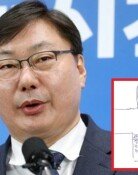Redevelopment is the answer
Redevelopment is the answer
Posted July. 21, 2020 07:43,
Updated July. 21, 2020 07:45
Speaking to parliamentary negotiation bodies on Monday, Democratic Party floor leader Kim Tae-nyeon suggested moving the administrative capital. “Creating a complete administrative capital can resolve the overcrowding in the Seoul metropolitan area and drive down property prices,” he said as housing prices and rents soar in the regions despite the introduction of 22 policy packages such as punitive taxes and restrictions on loans.
What Kim suggested was to move every administrative office, including the entire National Assembly and all government agencies, to Sejong City. Moving an administrative capital, which was one of former President Roh Moo-hyun’s election promises, was ruled as unconstitutional back in 2004, which is why Sejong City was designated as an administrative city instead where some government agencies relocated to. It may have been a political success. The former president admitted that it “helped greatly with the elections.” However, it did little to disperse population across the country and was criticized for wasting the budget and administrative capabilities.
Opposite parties have not welcomed Kim’s suggestion, which has a great political impact and requires a change in constitution. “We cannot overturn the ruling that deemed it unconstitutional,” said Kim Chong-in, the chairman of the emergency committee of the United Future Party. Kwon Eun-hui, the floor leader of the People Party, said it lacks political consensus. Some argue that the ruling party has brought up the administrative capital issue again, which only causes controversy and polarizes the public, to distract the public’s attention to something else than its failure to control the property market.
Easing green belt restrictions, although there has been much confusion, has now been taken off the list of possible solutions after President Moon Jae-in said Monday that green belt must be maintained for future generations. His decision has been met with positive responses. Lifting green belt restrictions may provide easy solutions for a short supply of housing but, once destroyed, green belt areas cannot be restored. However, this does not change the reality where more houses needed to be provided for those who need housing in Seoul such as younger generations.
The government should stop trying to resolve the issue with alternative ways such as easing green belt restrictions or creating an administrative capital. It should implement the most effective solution while setting aside its ideological and political leanings. Otherwise, the burden will be placed on the South Korean public four to five years later. Seoul has many areas full of old houses. The government should not only implement fast-track reconstruction processes but also lift restrictions so that these areas can be developed in a practical and effective way. These are the surest ways to increase supply where it is needed.
Joong-Hyun Park sanjuck@donga.com







